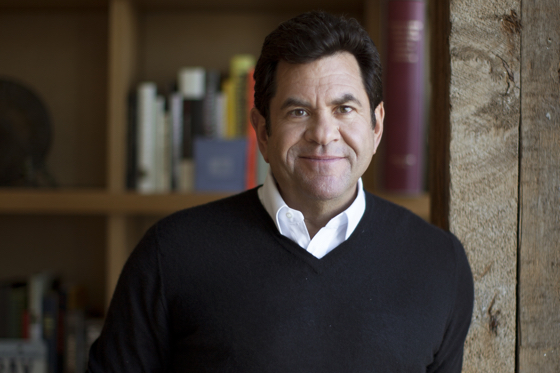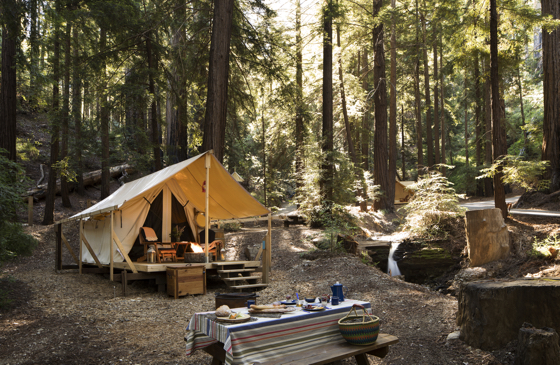Geolo Capital Founder John Pritzker started in the family’s Hyatt hotel business in operations, eventually becoming a GM before spending the good part of the past 40 years helping create and invest in everything from Ticketmaster to early boutique leader Joie de Vivre hotels.
He created Commune Hotels & Resorts in 2011 and in 2016 merged that business with Destination Hotels to form Two Roads Hospitality. Two years later, he sold Two Roads two his family’s Hyatt Hotels Corp. for more than US$400 million. He continues to own and develop hotels like Carmel Valley Ranch in northern California and recently started a finance vertical that will deploy mezzanine and preferred equity investments in the hospitality space.
But did you also know that about seven years ago he invested in and executive produced a documentary film called “Saint Misbehavin’,” about a San Francisco Bay-area counter-culture clown named Wavy Gravy?
The investment was befitting of his formative years in the 1970s, in what one day would become his hometown of San Francisco, where Pritzker was a pony-tailed idealist going to Grateful Dead concerts and idolizing show promoter Bill Graham. His love for the concert business led to him taking an original board position with Ticketmaster as a family liaison in the early 1980s.

Pritzker, 66, listed by Forbes with a net worth of more than US$2 billion, recalls with fondness how Wavy was a metaphor for that time’s principles of peace and love, often dressed as a clown, babysitting backstage for musicians’ children. Wavy also ran a summer camp for children and raised money for a charity to combat blindness in the Third World.
Perhaps some of those ’70s experiences and early Hyatt operations lessons helped Pritzker form his hospitality tenets. While he is driven by deals (he recently developed, opened and sold the Thompson hotel in Washington, D.C., and is developing an even bigger mixed-use Thompson project in Austin, Texas), he still talks like an operator, referencing influences like Hyatt legends Pat Foley, Don DePorter and Peter Goldman. And he is quick to say that the bottom line for owners and operators starts with service delivery and care for guests.
HotelsLife recently talked to Pritzker to get his take on multiple issues and opportunities of the day.
HotelsLife: What truly matters to you about the hotel business?
John Pritzker: It’s the people – I don’t even hesitate to say it. It’s the ability to be collegial, it’s the ability to lead, it’s watching the growth in people. On property, it’s creating opportunities not just for employment, but for meaningful employment, fun employment. What I tell people is, ‘When you interact with guests, like a teacher, you can have a lasting impression.’
HL: What’s the most exciting project of the moment?
JP: Our Austin, Texas, partnership with Magellan Development (Chicago) – a US$300 million-plus mixed-use development encompassing two hotels, luxury apartments, a robust offering of amenities, and a diverse retail program in one of America’s most exciting and fastest-growing markets. A total of 405 keys will be split between Thompson and a brand still to be determined, along with 331 apartments, 50,000 square feet of guest-facing retail, F&B and amenity space anticipated to open in mid-2021.

HL: What are your views on the macros and their impact on hotel development?
JP: We’re entering year 12 of the economic recovery and the hotel financing environment has never been better. We successfully refinanced all of our existing investments and have experienced strong interest in our lending platform.
The problem is the availability of cheap capital isn’t enough to counter the effects of high land basis, elevated construction costs and various operational headwinds.
It’s feeling late in the game and the effects of all of the new supply, an increasingly competitive labor market and shadow inventory sources such as Airbnb and Sonder-type products makes it difficult to achieve traditional private equity returns in a three- to five-year time frame.
We’re in a fortunate position in that we’re not on a fund-like “shot clock” and are able to commit to a longer-term strategy. We have sufficient dry powder and will be will be selective but opportunistic.
HL: Where are asset prices heading, and what would further increase M&A activity?
JP: Land and construction costs are higher than they’ve ever been, asset pricing across nearly all sectors is at a 10-year high, the investment and acquisition space is extremely competitive, and cap rates are incredibly low. In many markets, we’re seeing wage escalation outstrip RevPAR growth.
I suspect much of the M&A activity amongst the big brands has already occurred and we’ll begin to see a normalizing period in the near term rather than more high-profile M&A activity as the big flags figure out how to reposition themselves.
Tapered growth and/or regression is inevitable, but given the amount of available liquidity and capital, a muted, short-term period of distress is more likely next time around. The biggest threat is margin erosion if costs continue to rise faster than revenue.
HL: What is the next big opportunity in hospitality development?
JP: We’re interested in the blurred line between traditional hospitality and multi-family. Your average hotel guest wants to experience a market like a local; they want something closer to a residential experience. By the same token, apartment tenants want more than traditional building amenities (doorman, gym, etc.); they want community, programming and activated spaces you’d traditionally find in lifestyle hotels. The intersection of this product evolution is an exciting space right now.
HL: What were your biggest learns from the development of Commune through the sale of Two Roads?
JP: Beginning with Carmel Valley Ranch in 2011, we stuck to a plan and developed brands (Carmel Valley Ranch, Chicago Athletic Association and Ventana Big Sur) with our own capital. We married our capital with a team that can design, develop and operate fantastic properties and provide guests with amazing experiences. Then, rinse and repeat. We then combined those attributes with M&A activity and onboarded the Joie de Vivre, Thompson, Alila and Destination brands. All of that and the sale to Hyatt was accomplished in a six-year period.
The biggest learn is how crowded the field of hotel management companies is. It enables owners to aggressively bid and squeeze margins in the space.
HL: What do you not do in your business life/plan, on purpose?
JP: I don’t yell, stomp my feet or disrespect people. You want to say, ‘Of course you don’t.’ But I’m always amazed at people that do. You just wonder what goes through their head. You can’t treat people like they’re chattel. It’s not right. Are you thinking that’s going to get the highest level of productivity?
